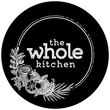Does 'healthier sugar' exist?

A bad night’s sleep? Hunger pangs as soon as you wake up? Fatigue? These are all symptoms associated with a sugar overload and a key indication that your body may have become reliant on sugar.
Put simply, if you eat more sugar than your body needs it gets stored on the body as fat and could potentially lead to many serious chronic diseases, such as diabetes, obesity and cardiovascular disease. Sugar is also highly addictive so the more you have the more you crave. When you remove a lot of the sugar from your diet, you will notice you don't crave it as much, you feel more satisfied and have less overall hunger.
What happens when we consume sugar?
Sugar has an interesting effect on the body, it not only triggers our opioid receptors and raises our dopamine levels, also known as the “pleasure” hormone, but it also spikes our blood-sugar levels. When we eat sugar we naturally feel better because of its link with dopamine, and while immediately after consuming sugar we might feel great, this is only short term. For many the come down is where you end up feeling deflated and fatigued, and crave more sugar to lift us up again. The next time you have something really sweet, try and pay attention to your energy levels, you’ll feel great, and then most people will suddenly be hit by a wave of unexplainable fatigue. As well as this, sugar can also have negative impacts on our sleep, and can leave us feeling incredibly hungry despite having just eaten.
Not only this, but having elevated blood sugar for too long is a risk so we produce insulin, the hormone which transports sugar from the blood and moves it to our muscles (for that next workout), to the liver (which already has enough work to do!) or stores it on the body as fat (for a rainy day when you might need more energy again). The difference between now and historically is that those rainy days very rarely come as we have access to sugar everyday in the food we eat.
Sugar has many names
From the more common white table sugar, cane sugar to more unusual ones. Ingredients which end with "ose", "syrup" or "sweetener" are likely other forms of sugar. Glucose, fructose, lactose, corn syrup, corn sweetener, organic evaporated cane juice, agave nectar - these are all sugars.

Unrefined vs refined sugar
The closer a sugar is to its natural state (e.g. fresh whole fruit) the more nutrients, vitamins and fibre it will have, slowing the release of the sugar into the blood stream (low GI). More natural sugars include honey, raw coconut sugar and dried fruit. When the fibre and nutrients are removed, refined sugar is left, spiking blood sugar very quickly.
Eating foods high in protein with your sugar (e.g. a handful of nuts with fresh fruit), will slow down the blood sugar spike and keep you full for longer without craving more sugar shortly afterwards.
In summary, sugar is sugar
Start to understand what is in your food by reading food labels and as is our philosophy at The Whole Kitchen, try to incorporate as many whole foods into your diet as you can. Your body will thank you for it!

